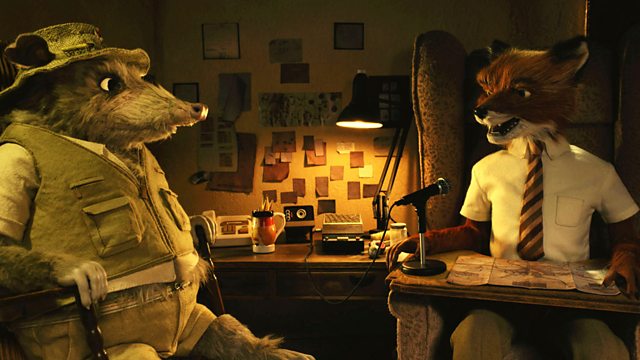Wes Anderson's film of Fantastic Mr Fox, Legend of a Suicide by David Vann, and Andrew Marr’s The Making of Modern Britain
Tom Sutcliffe is joined by David Aaronovitch, Kathryn Hughes and John Carey to discuss the week's cultural highlights - featuring wild animals, wild sculptors and wild living.
Tom Sutcliffe is joined by writer David Aaronovitch, historian Kathryn Hughes and literary critic John Carey to discuss the cultural highlights of the week - featuring wild animals, wild sculptors and wild living.
Director Gregory Doran has pestered Richard Wilson to play the role of Malvolio for 20 years. Finally persuaded, Wilson duly dons the cross-gartered yellow stockings for the RSC production of Twelfth Night at the Courtyard Theatre in Stratford. Illyria, in which Shakespeare sets the play, roughly corresponds to present-day Albania, and Doran locates the action there during the Romantic period, when adventurers such as Lord Byron made that corner of the Ottoman empire a fashionable destination.
Wes Anderson's film adaptation of Roald Dahl's book Fantastic Mr Fox sets itself apart from recent animated blockbusters by using stop-motion animation rather than CGI. It does, however, stick with the trend of employing a star-studded voice cast which includes George Clooney, Merryl Streep, Bill Murray and Willem Defoe. In a world somewhere between Tennessee and the home counties, Mr Fox and his animal pals lock horns in an existential struggle with vengeful farmers Boggis, Bunce and Bean.
Legend of a Suicide is David Vann's first novel. At least, that's how it's being presented in the UK. In the US it was marketed as a collection of five short stories and a novella. It's a small distinction, but it subtly alters the way in which the reader approaches the book. It is also significant to know that Vann grew up in Alaska and that his father committed suicide, because these are attributes shared by the book's protagonist, Roy. No matter that it is heavily autobiographical, Legend of a Suicide is a powerful work of fiction with a collossal twist in the middle.
'A well-made young wolf or some soft-moving, bright-eyed wild thing.' This is how Ezra Pound described the sculptor Henri Gaudier-Brzeska when he met him in 1913, and it provides the title for the Royal Academy's exhibition, Wild Thing: Epstein, Gaudier-Brzeska, Gill. Between 1905 and 1915 these three artists produced work which shocked Edwardian Britain into modernity. Included in the exhibition are key works such as Gill's Ecstasy, Gaudier-Brzeska's Birds Erect, and Epstein's Rock Drill.
Andrew Marr's History of Modern Britain was a BAFTA-winning series which explored the period from the end of the Second World War to the present day. Now, in The Making of Modern Britain, he turns his attention to the events which radically reshaped British society in the years between 1901 and 1945 - little more than four decades that separated the end of the Victorian era and the dawning of the atomic age. The series uses archive footage and Marr's mixture of pithy anecdote and analysis to tell a powerful national saga.
Last on
Broadcast
- Sat 24 Oct 2009 19:15Βι¶ΉΤΌΕΔ Radio 4
Subscribe to the Saturday Review podcast
Sign up to the Saturday Review podcast for the latest and past episodes to download.
Podcast
-
![]()
Saturday Review
Sharp, critical discussion of the week's cultural events, with Tom Sutcliffe and guests


